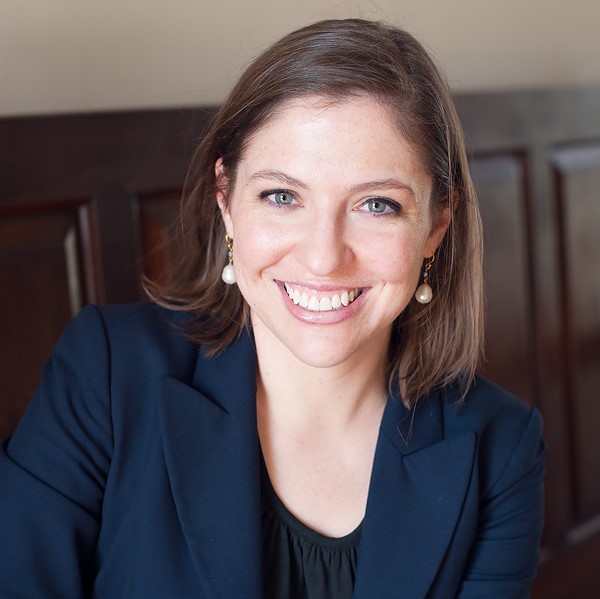
Dr. Lindsay M. Chervinsky is Scholar in Residence at the Institute for Thomas Paine Studies at Iona College and Senior Fellow at the International Center for Jefferson Studies. Previously, she was a historian at the White House Historical Association and a Postdoctoral Fellow at the Center for Presidential History at Southern Methodist University. She received her B.A. in history and political science from the George Washington University, and completed her masters and Ph.D. from the University of California, Davis. She is the author of the award-winning The Cabinet: George Washington and the Creation of an American Institution, which was published by Harvard University Press on April 7, 2020.
Her writing has been published in Law and History Review, the Journal of the Early Republic, The Hill, TIME, USA Today, the Washington Post, and more. When she’s not writing, researching, or speaking about history, she loves to hike with her husband and her dog, John Quincy Dog Adams.
Dr. Chervinsky’s website. Follow Dr. Chervinsky on Twitter.
Season 1, Episode 10
This month on Public History in a Virtual Age, we look at public history in the classroom. Though sometimes overlooked in the broader field, schools are centers of public history engagement. From classes geared towards understanding the field to projects focused on exploring an institution’s past, the academic world offers diverse opportunities for public historians to learn more and create. As they discuss their experiences as history professors, today’s guests will take us through the variety of ways that public history intersects with the academic sphere- and reflect on the impact of public history on the way they teach.

Dr. Whitney Stewart is an Assistant Professor of History at the University of Texas at Dallas, where she teaches courses in public history, material culture, and slavery. She is also a faculty member at the Edith O’Donnell Institute of Art History at UTD. Dr. Stewart earned her Ph.D. in History from Rice University in 2017. Her book This Is Our Home: The Struggle for Homeplace on Southern Plantations (forthcoming from the University of North Carolina Press) explores how enslaved and enslaving residents of plantations in the nineteenth-century US South used their built environment and material culture to make home.
Learn more about Dr. Stewart on her UTD profile.
Follow Dr. Stewart on Twitter.
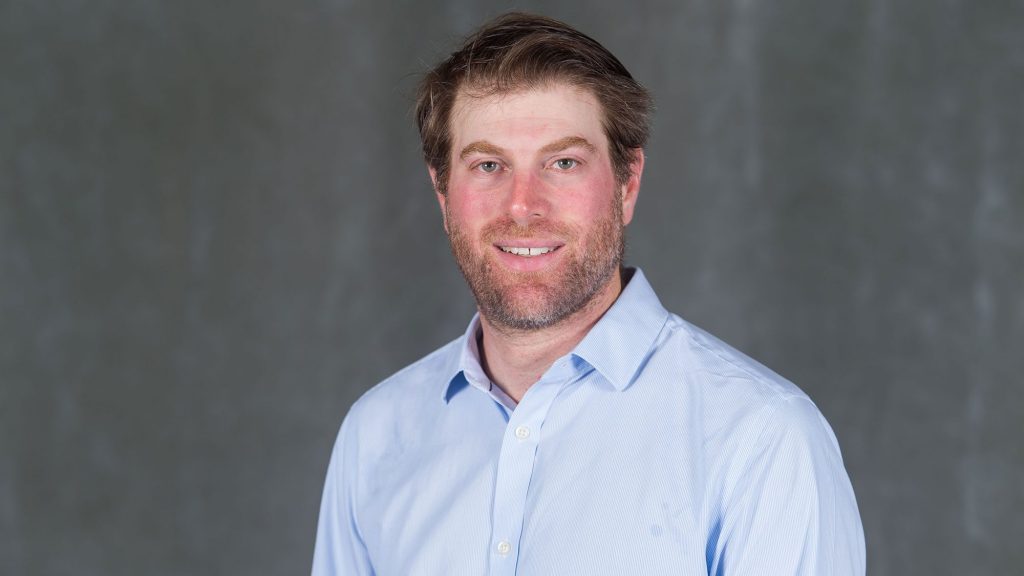
We then speak with Dr. Adam Rothman, a Professor of History at Georgetown University. As the principal curator of the Georgetown Slavery Archive, he will explore the ways that an academic institution’s history can be brought to the public eye and note the impact of student involvement. He will also highlight the power of social media (especially Twitter) in the creation of public history and sharing of history resources.
Season 1, Episode 9
For this month’s episode of Public History in a Virtual Age, we are diving into museum exhibits. When touring, or digitally browsing, a finished exhibit, you might not consider the years of development that go into its creation. From the initial concept, there are countless steps, and numerous individuals, involved in the process of translating history into an exhibit format; script writing, fundraising, spatial and graphic design, mount making, fabrication, installation, and more! Today’s guests will shed some light on this exciting process and explore the benefits and challenges of interpreting history in a museum setting.
First, we speak with Alison Mann, a Public Historian at the National Museum of American Diplomacy. As the museum is currently in development, she will guide us through what it takes to create a museum, from determining an overarching theme and throughline to writing concise and accessible exhibit labels. She will also discuss the use of technology and experiential elements, as well as how museums can approach their topics in moments of partisan division.
We then speak with three members of the Smithsonian Exhibits team; Deputy Director Matthew O’Connor, Head of Exhibit Design Juanita Wichienkuer, and exhibit developer and writer John Powell. They will discuss the multiple year process of developing an exhibit for the Smithsonian, including the importance of considering your audience and the collaborative nature of the Smithsonian’s in-house Exhibits team. They will also reflect on the pandemic’s impact on museum exhibits and the transition to virtual experiences.
Guests:
Alison Mann is a Public Historian at the National Museum of American Diplomacy, a partnership between the State Department and the Diplomacy Center Foundation and the first museum to highlight the subject of diplomacy. She has previously taught history at the Abraham Baldwin Agricultural College, Franklin Pierce University, and the University of New Hampshire, and was a Park Ranger at the Boston African American National Historic Site. Dr. Mann earned her Ph.D. in History from the University of New Hampshire in 2010.
Learn more about Dr. Mann on her LinkedIn. Follow Dr. Mann on Twitter.
Learn more about the National Museum of American Diplomacy’s online exhibits.
Juanita Wichienkuer is an award-winning architect with broad experience in design, building, and construction project management. She has worked for leading design firms such as Ralph Appelbaum Associates, as the lead exhibit designer for the History Galleries at the new Smithsonian National Museum of African American History & Culture, and as the Director of Architecture & Interiors for Atelier Ace / Ace Hotel. Her work has been exhibited at the Venice Biennale, MoMA, and the New York Center for Architecture, and has been published in the New York Times, CBS News 60 Minutes, and Architectural Record. She is currently the Chief of Design for Smithsonian Exhibits.
Juanita holds a masters of architecture degree from Parsons School of Design where she received the Alpha Rho Chi Medal and a bachelor of arts in architecture from the University of California, Berkeley with a minor in History of the Built Environment. She has taught at Cornell University with Pritzker Prize winning humanitarian Shigeru Ban and at Parsons School of Design.
Learn more about Juanita on her website.
John Powell is an exhibit developer/writer at Smithsonian Exhibits, the Smithsonian Institution’s central resource for developing, designing, and producing exhibitions. At Smithsonian Exhibits, John collaborates with curators, subject matter experts, designers, and others to plan and create engaging and accessible exhibitions on a wide range of subjects.
Prior to joining the Smithsonian in 2017, John worked as an exhibit writer at the Newseum in Washington, D.C., and as curator of the President Woodrow Wilson House, a National Trust Historic Site. He began his museum career in the U.K. as a researcher and assistant curator at the Black Country Living Museum. John has a bachelor’s degree in history from McGill University in Montreal and a master’s degree in museum studies from the University of Leicester in the U.K.
Matthew O’Connor is originally from New York. Prior to taking the position of Deputy Director for SIE in 2018, he was the Director of Operations at the Cooper Hewitt, Smithsonian Design Museum. His professional career prior to that includes fabrication for film and television, and industrial design.
Learn more about the Smithsonian Exhibits team. Follow Smithsonian Exhibits on Twitter.
Episode 8: Live Embodiment Storytelling, Part I & II
This month on Public History in a Virtual Age, we explore living embodiment storytelling, a medium that brings history to life through the portrayal of individuals from the past. A unique and theatrical method of sharing history, storytelling provides audiences with an immersive experience in which they can speak directly to historical figures, humanizing a past that can sometimes seem distant. For living embodiment storytellers, their work is an exciting challenge in maintaining authenticity and doing justice to historical individuals while approaching audiences with a 21st century perspective.
Today, we speak with Brian Hilton, founder of Hail to the Chief, which provides audiences with authentic performances of U.S. Presidents. Discussing his portrayal of George Washington, Hilton will tell us about his never-ending research process, the challenges that come with presenting such a well-known figure, the role of clothing and physicality in embodying a historical person, and how he uses Washington’s life to expand the historical narrative.
We also recommend listening to episode 161 of Conversations at the Washington Library, “Finding Ona Judge’s Voice with Sheila Arnold.” Arnold is a historic character interpreter and the founder of History’s Alive!, where she provides audiences with storytelling, professional development, and character presentations. Interviewed by Jim Ambuske of the Center for Digital History at the Washington Library, Arnold first appears in character as Ona Judge, and then discusses her experience of portraying enslaved individuals, how her performances humanize the past, and the power of storytelling to facilitate complex conversations about history.
Part II:
Note: This episode originally aired on January 30, 2020.
On today’s episode, Ona Judge tells her own story. Library Research Fellow Sheila Arnold joins Jim Ambuske in character as Ona Judge to give voice to her life. Arnold is a historic character interpreter who performs as many historical figures, including Ona Judge and Madame CJ Walker, an African American entrepreneur and businesswoman who was one of the wealthiest self-made women in early 20th century America.
During the first half of today’s show, Ambuske interviews Arnold as Ona Judge, as she might have been in the last years of her life. He then talks to Arnold herself about historic character interpretation and the powerful ways that performing as a formerly enslaved person can build bridges between communities.
Sheila Arnold currently resides in Hampton, VA. She is a Professional Storyteller, Character Interpreter and Teaching Artist. Through her company, History’s Alive!, Sheila has provided storytelling programs, historic character presentations, Christian monologues, dramatic/creative writing workshops, professional development for educators and inspirational/motivational speeches at schools, churches, libraries, professional organizations and museums, in 41 states since 2003.
Jim Ambuske, Ph.D. leads the Center for Digital History at the Washington Library. A historian of the American Revolution, Scotland, and the British Atlantic World, Ambuske graduated from the University of Virginia in 2016. He is a former Farmer Postdoctoral Fellow in Digital Humanities at the University of Virginia Law Library. At UVA Law, Ambuske co-directed the 1828 Catalogue Project and the Scottish Court of Session Project. He is currently at work on a book about emigration from Scotland in the era of the American Revolution as well as a chapter on Scottish loyalism during the American Revolution for a volume to be published by the University of Edinburgh Press.
Learn more about Conversations at the Washington Library.
Season 1, Episode 7
This month’s episode of Public History in a Virtual Age explores the wide world of digital history. Though defined by the use of computers to explore history, digital history includes a broad range of mediums, from computational analysis to virtual exhibits to podcasting. The digital approach is best known for its impact on accessibility, allowing history to be shared by the click of a button. Today, we’ll be speaking with two digital historians to learn about their unique approaches to the field, how digital work can be used to support and augment more traditional history, and the challenges and benefits of digital history.
First, we speak with Dr. Abby Mullen, a term assistant professor at George Mason University and member of the Roy Rosenzweig Center for Digital History and New Media, one of the oldest digital history centers. Mullen will tell us about the Center’s various programs and projects, discussing the use of digital history for education, source collection, and software development. She also highlights the interdisciplinary nature of digital history.
We then speak with Micki Kaufman, a Ph.D. candidate in digital history at the Graduate Center of the City University of New York. She will tell us about how she approaches digital history in her dissertation, a computational analysis of Henry Kissinger’s correspondence. As she discusses her discoveries and project goals, she’ll share how computational analysis can be used to uncover emotional aspects of historical narratives.
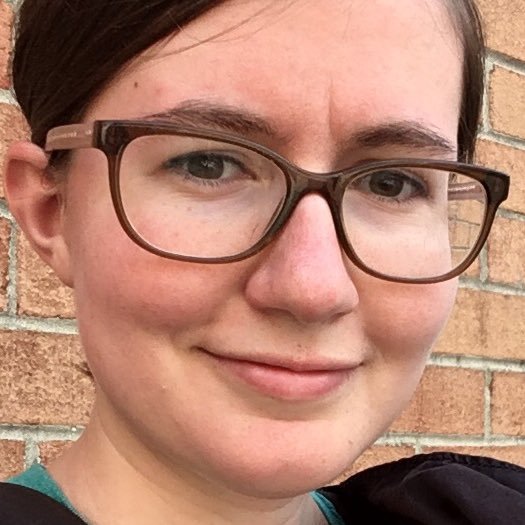
Dr. Abby Mullen is a term assistant professor at George Mason University, where she teaches digital history and military history courses. She also works on Tropy, a research tool created by the Roy Rosenzweig Center for History and New Media. She is the host and executive producer for Consolation Prize, a podcast about U.S. diplomacy on the ground through the eyes of American consuls. She also works on the Viral Texts project, where she does a variety of writing about historical topics related to newspapers.
Dr. Mullen earned her PhD in History from Northeastern University in 2017. Her book (forthcoming from Johns Hopkins University Press), A Difficult Undertaking: Conflict and Cooperation in the First Barbary War, 1801-1805, looks at how the United States attempted to integrate into the Mediterranean community while fighting against Tripoli.
Learn more about Dr. Mullen on her website. Follow Dr. Mullen on Twitter.
Follow Consolation Prize on Facebook, Twitter, and Instagram.

Micki Kaufman is a doctoral candidate and dissertation fellow in digital history at the Graduate Center of the City University of New York (CUNY). Her current dissertation, “‘Everything on Paper Will Be Used Against Me:’ Quantifying Kissinger” is a seven-time winner of the CUNY Graduate Center’s Provost’s Digital Innovation Grant. She is a co-author of “General, I Have Fought Just As Many Nuclear Wars As You Have,” published in the December 2021 American Historical Review. In 2015, Micki was awarded the ACH and ADHO’s Lisa Lena and Paul Fortier Prizes for best Digital Humanities research presented by an emerging scholar. She also served as Director of Information Systems for the Modern Language Association from 2015-2016, and from 2015-2017 she served as a Virtual Fellow with the Office of the Historian at the US State Department. Micki is currently a Biography Dissertation Fellow at the Leon Levy Center for Biography, and serves as an elected member of the Executive Council of the Association for Computers in the Humanities (ACH).
Season 1, Episode 6
This month we explore what we call “in-house” historians. Historians don’t just work at museums and universities, but in government institutions and historical societies. Today we are speaking with two such historians to learn about the stories they share, their daily responsibilities, their audiences, and how different these jobs can be from each other and the variety of history work available.
First, we speak with Dr. Sara Georgini, a series editor of The Papers of John Adams, a documentary editing project at the Massachusetts Historical Society. Georgini will tell us about the documentary editing process, how long it takes to produce each volume, and her favorite items in the collection.
We then speak with Terrance Rucker, a Ph.D. candidate at the George Washington University and a Historical Publications specialist in the Office of the Historian at the U.S. House of Representatives. He will share what the Historian at the U.S. house of Representatives does, some of their big projects, and the challenges of congressional records.
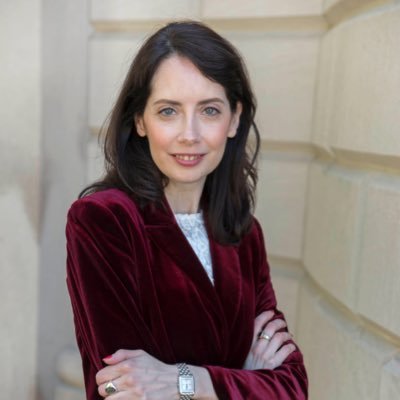
Dr. Sara Georgini earned her Ph.D. in History from Boston University in 2016. She is the Series Editor for The Papers of John Adams, part of The Adams Papers project at the Massachusetts Historical Society, and author of Household Gods: The Religious Lives of the Adams Family (Oxford University Press, 2018). Committed to the preservation of and access to rare primary sources, she has worked on the selection, annotation, indexing, and book production of a dozen scholarly editions drawn from the Adams Papers (Harvard University Press, 2009— ), covering the history of American political life in the era ranging from the Declaration to disunion. Her research focuses on early American thought, culture, and religion. Dr. Georgini is a co-founder and contributor to The Junto and the Society for U.S. Intellectual History blogs. She also writes about American history, thought, and culture for Smithsonian and CNN. Follow Dr. Georgini on Twitter.
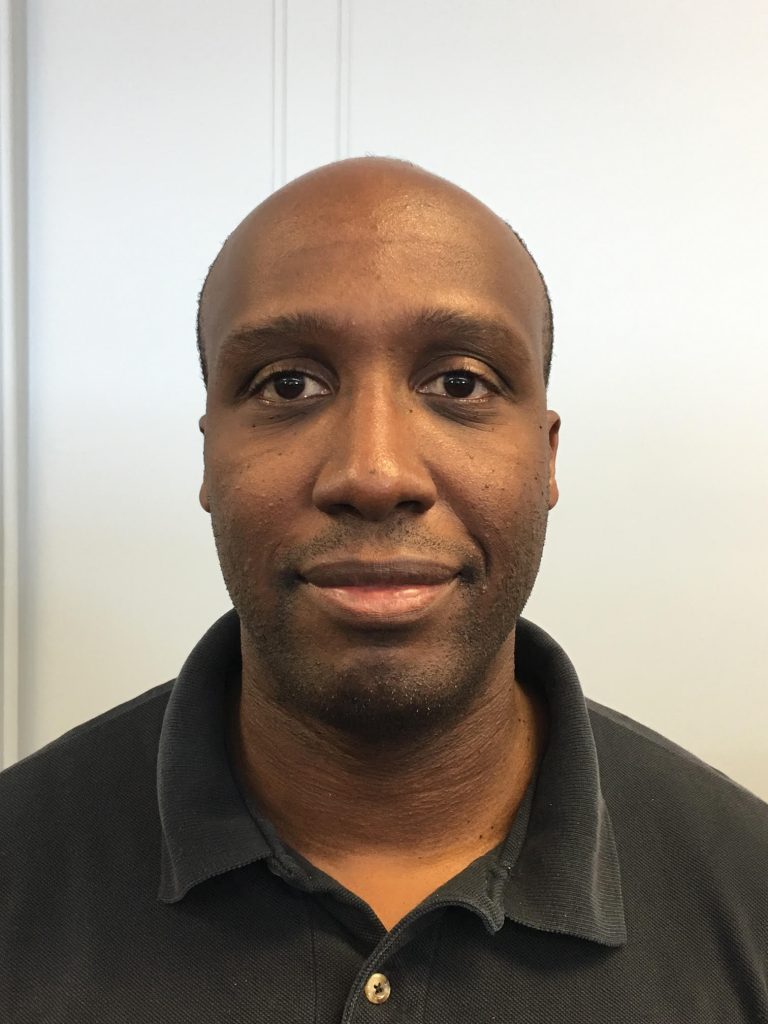
Terrance Rucker is a Historical Publications Specialist in the Office of the Historian at the U.S. House of Representatives. He assists with editing the online Biographical Directory of the U.S. Congress and was a contributing writer to the four-volume Minorities in Congress series. Terrance served on the executive council and as President of the Society for History in the Federal Government. A Ph.D. candidate at The George Washington University, Terrance is writing a dissertation about Congressional delegates in the Rocky Mountain West during the Civil War era.
Season 1, Episode 5
Episode 5 of Public History in a Virtual Age explores oral history. Oral histories are a collection of stories, memories, and first-hand accounts to create an inclusive archive about a place, event, or community. They are available to anyone, but also have their own set of skills, best practices, and ethical guidelines.
We speak with three public historians and oral history experts about the stories and the history they share. First, we with speak with Dr. Anna F. Kaplan, an oral historian, project designer, historian, and educator interested in memory and how individuals and communities remember the past and tell stories to shape the future, particularly about race in the US. You will hear more about the practice of oral history, some of her favorite projects, and what oral history has to offer to the field of public history.
Then, Anne Dobberteen and Allison LaCroix join us to discuss the Home/Brewed oral history project at the Heurich House Museum in Washington, D.C. Allison is the Collections Manager at Heurich House and the supervisor of the oral history program. Anne was the point person on the project and conducted the interviews. They share the history of the Heurich House, the stories captured in the oral history project, and what they tell us about immigration and D.C. history.
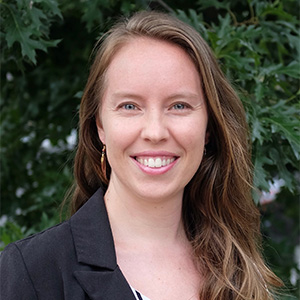
Dr. Anna F. Kaplan, PhD, is an oral historian, project designer, historian, and educator interested in memory and how individuals and communities remember the past and tell stories to shape the future, particularly about race in the US. Working with public-facing organizations and higher education institutions, she strives to bridge the gaps between academia and everyday people, between academic scholarship and the wisdom of communities’ and individuals’ lived experiences.
Dr. Kaplan received her Ph.D from American University and works with the DC Oral History Collaborative, the Shenandoah National Park Trust, and the “In Our Own Words: Deaf Perspectives in Oral History and Public History” project. Dr. Kaplan’s website. Follow Dr. Kaplan on Twitter.
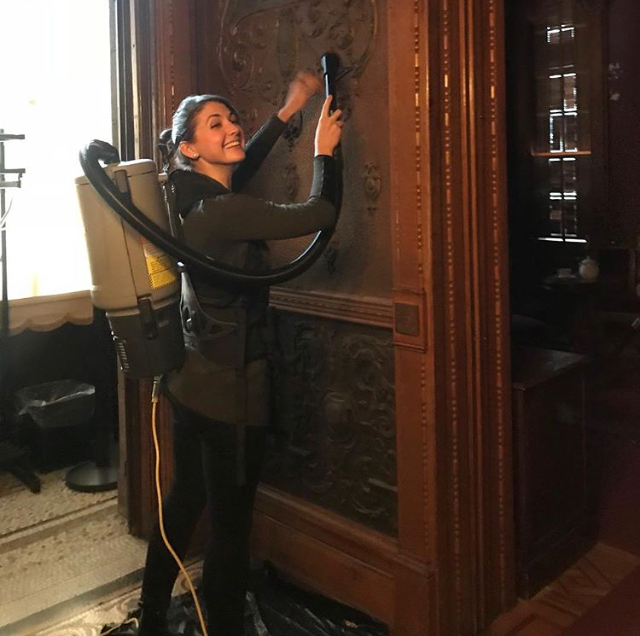
Allison LaCroix is the Collections Manager at the Heurich House Museum, responsible for the stewardship of the museum’s object, archive, and photograph collections. Ms. LaCroix has been with the Heurich House Museum since 2017, and has contributed towards improving the care, maintenance, and access to the museum’s collections, as well as professionalizing the Collections Management processes and procedures at the museum. Prior to her work at the Museum, Ms. LaCroix obtained a Master of Arts in History and Museum Studies in 2015, and has over 6 years of collections work experience in a variety of institutions with diverse collections. Follow Heurich House on Instagram and on Twitter.
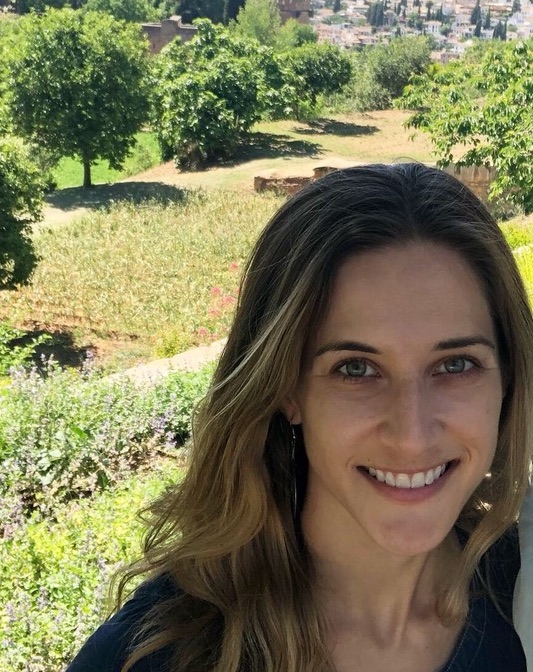
Anne Dobberteen, M.A. Anne is a public historian who is currently pursuing a Ph.D. in history at George Mason University. Her research focuses on the visual culture of nineteenth- and twentieth-century U.S. cities. Before beginning her doctoral studies, Anne served as assistant curator of the Albert H. Small Washingtoniana Collection at the George Washington University Museum. She has also done other public history work at various organizations in Washington, D.C., most recently as an oral historian with the Heurich House Museum. More information can be found here. She also works as the sound editor for Public History in a Virtual Age.
Season 1, Episode 4
Episode 4 of Public History in a Virtual Age explores historic sites and their role in public history. Historic sites are one of the oldest and most popular forms of public history—in fact, one of your first history memories is probably visiting a house or site near you. Rightly so! There is almost nothing more powerful than experiencing the physical environment and lived experience of people that came before us. Seeing the rooms, the items, the way people lived and worked help our imaginations come alive. Which is one of the reasons these sites are so valuable as teaching tools for students of all ages.
On today’s episode we speak with two public historians and education experts about their sites and the history they share. The first is Amanda Roper, the Manager of Interpretation at the Lee-Fendall House, historic house in Alexandria, Virginia. Then we speak with Lauren Zalut, the Director of Education and Tour Programs at Eastern State Penitentiary—an abandoned prison in Philadelphia, Pennsylvania and the first true penitentiary in the world.
Together, these interviews reveal a couple of important lessons about historic sites and public history:
- the incredible variety and diversity among historic sites
- how historic sites can share the stories of individuals traditionally erased in the written archive
- the exciting programs historic sites offer to welcome new audiences
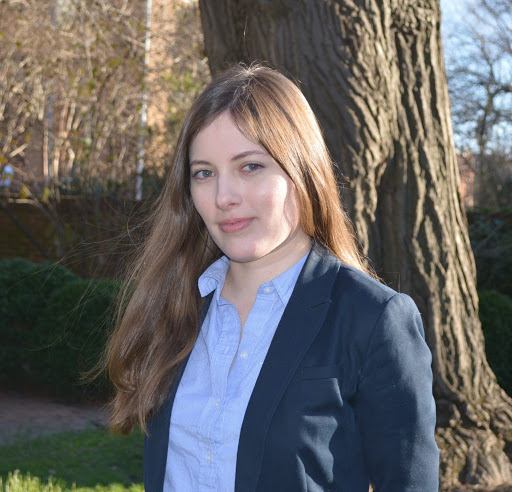
Amanda Roper is the Manager of Interpretation at Lee-Fendall House historic site in Alexandria, Virginia. She previously worked at the Smithsonian National Museum of African American History and Culture, Woodlawn, and the McLeod Plantation in Charleston, South Carolina.
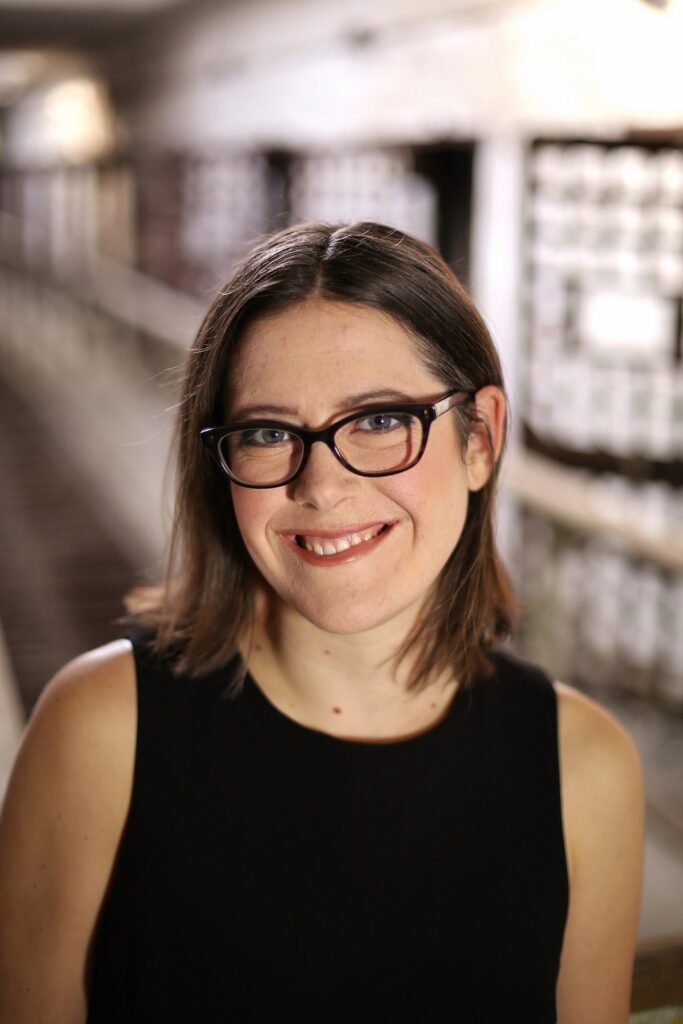
Lauren Zalut oversees guided tours, trains Educators, and leads family and school programming at Eastern State Penitentiary Historic Site in Philadelphia. Using the site as a catalyst for conversation and action on social issues, Lauren has worked to incorporated dialogue, lived experience in prison, and content about mass incarceration into guided visitor experiences.
Season 1, Episode 3
This month we are exploring an under-appreciated part of public history and culture—civic education and citizenship. History has the power to help up us understand who we are and how we got to our current moment, but that knowledge means nothing if we don’t engage as citizens. So this month we will be focusing on voting and elections—the core of any democracy and the heart of citizenship.
Today, Dr. Lindsay Chervinsky sat down with Dr. Mark Boonshoft, an assistant professor at Virginia Military Institute. They discussed some of the early presidential elections, how citizens voted, how elections have changed over time, and how this election compares to past examples. We hope you’ll find this conversation enjoyable and informative!
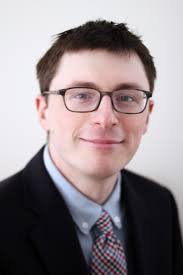
Dr. Mark Boonshoft is an Assistant Professor of History at Virginia Military Institute. His first book, Aristocratic Education and the Making of the American Republic, was published by the University of North Carolina Press in fall 2020. Before joining Duquesne, Dr. Boonshoft received a Ph.D. in early American history from Ohio State University (2015), spent two years as a post-doctoral research fellow at the New York Public Library, and taught at Norwich University in Northfield, Vermont. At NYPL, he curated the Early American Manuscripts Project, which made freely available over 50,000 pages of historic eighteenth and early nineteenth-century manuscripts.
Season 1, Episode 2
This month we are exploring an under-appreciated part of public history and culture—civic education and citizenship. This episode, episode two of this season, is all about voting and the importance of registration. History has the power to help up us understand who we are and how we got to our current moment, but that knowledge means nothing if we don’t engage as citizens. So this month we will be focusing on voting and elections—the core of any democracy and the heart of citizenship.
In this episode, part one of elections month, we are speaking with Andy Bernstein, the executive director of HeadCount. Andy Bernstein helped found HeadCount in 2004 and became its executive director in the spring of 2008. Under his stewardship, HeadCount has registered nearly 500,000 and become a leader in harnessing the power of music to drive social change. Andy was one of the founders of National Voter Registration Day, and conceived the corresponding social media campaign that has involved over 500 musicians and celebrities and generated over one billion social media impressions. He also helped create “Participation Row,” an activism village where concert attendees have taken over 100,000 socially-conscious actions while raising nearly $1.5 million for various music-industry charities (including over $500,000 generated from the auction of one guitar signed by members of the Grateful Dead).
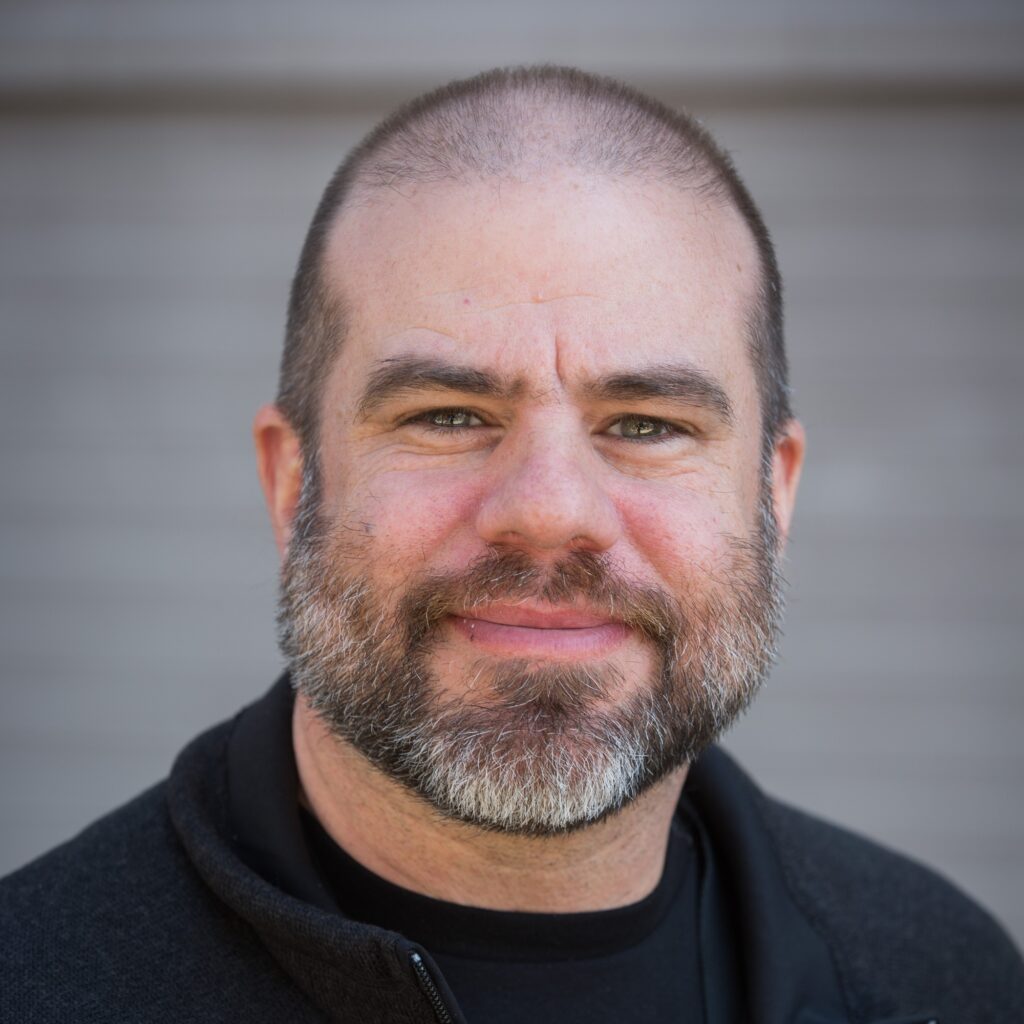
Andy has produced nearly a dozen benefit concerts and live music events, including 2012’s “The Bridge Session,” which paired HeadCount board member Bob Weir with members of The National for the first time. Prior to creating HeadCount, Andy was best known in the music community as an author of “The Pharmer’s Almanac”, a guide to the band Phish that sold over 70,000 copies. He also worked in sports for more than a decade, as media editor of Street & Smith’s SportsBusiness Journal and a vice president at the sports technology company Kangaroo TV. He splits his time between New York City and a slope side ski condo in nearby Vernon, NJ.
Season 1, Episode 1
Episode 1 introduces the goals of this series:
- For history buffs: share all of the incredible ways historical information can be shared and perhaps learn about a new podcast, museum, website, or exhibit.
- For those looking to work in the historical field: share just a few of the limitless possibilities.
- For those already working in history: share some of the digital innovations of your peers in the hopes it might inspire your own work while we are still at home.
This episode introduces you to two of Dr. Lindsay Chervinsky’s favorite history podcasts. First, we talk with Dr. Liz Covart, the host and creator of Ben Franklin’s World, an award-winning, field-defining podcast on #VastEarlyAmerica. Next, we talk with Dr. Jim Ambuske, the host of Conversations at the Washington Library. Conversations originally started as an opportunity to interview the fellows and researchers that passed through the Washington Library and has expanded into a podcast sharing innovate and cutting-edge research.
Drs. Covart and Ambuske share their philosophy about podcasting as public history, their intended audiences, how they learned to podcast, and what podcast they would create if they had unlimited time.
Ben Franklin’s World | Omohundro Institute for Early American History and Culture | Ben Franklin’s World Listener Group on Facebook | Conversations at the Washington Library | Center for Digital History at the Washington Library at Mount Vernon | UVA Law Library Scottish Court of Sessions
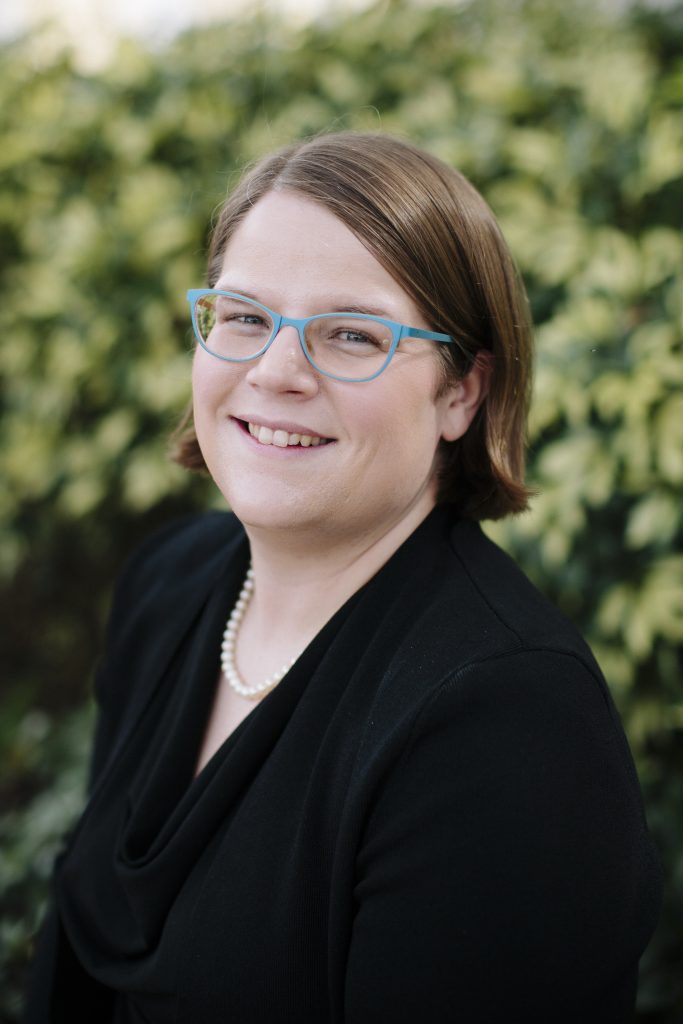
Dr. Liz Covart: As the Digital Projects Editor at the Omohundro Institute, historian Liz Covart hosts and produces podcast Ben Franklin’s World: A Podcast About Early American History, winner of the Best History Podcast Award in 2017. She’s a practitioner of scholarly history, public history, and digital humanities. She experiments with social and new media to communicate scholarly history to large, public audiences. Liz believes that if granted convenient access to the work of historians, the public will take an interest in history and become advocates for it. Her traditional scholarship informs her digital work by investigating how early Americans overcame cultural and political diversity to form local, regional, and national communities and identities. Liz’s website and twitter: lizcovart.com; @lizcovart.
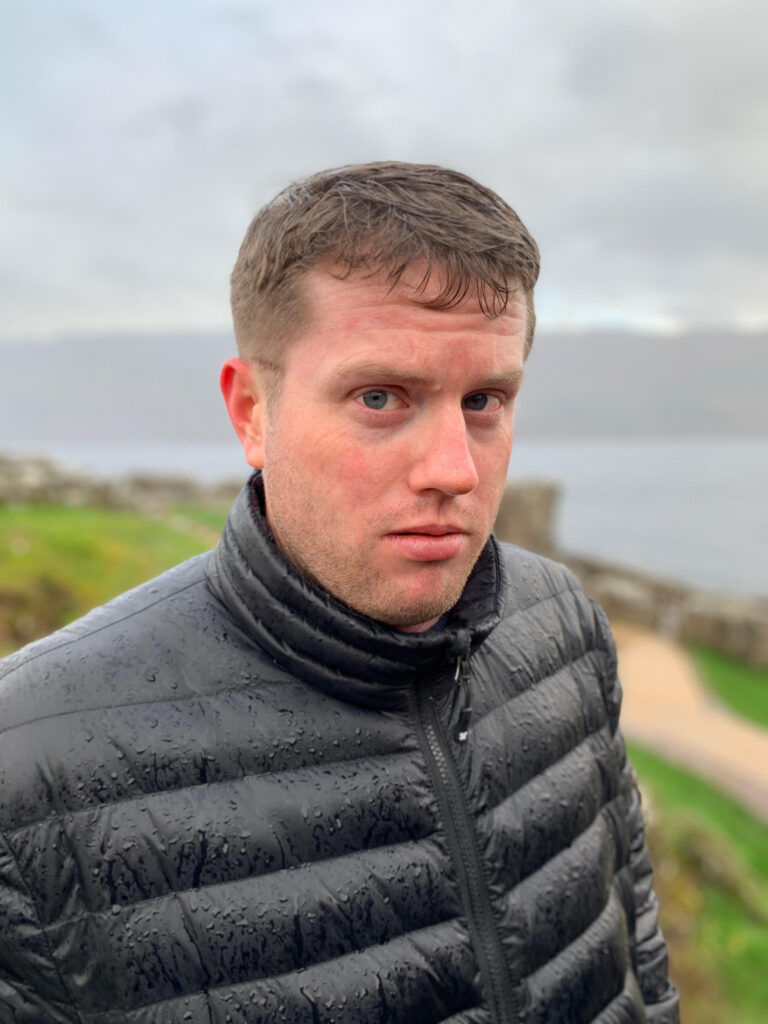
Jim Ambuske, Ph.D. leads the Center for Digital History at the Washington Library where he is the producer and host of the podcast Conversations at the Washington Library as well as co-producer and co-host of the library’s Digital Talks series. A historian of the American Revolution, Scotland, and the British Atlantic World, Ambuske graduated from the University of Virginia in 2016. He is a former Farmer Postdoctoral Fellow in Digital Humanities at the University of Virginia Law Library. At UVA Law, Ambuske co-directed the 1828 Catalogue Project and the Scottish Court of Session Project. He is the author, with Randall Flaherty, of “Reading Law in the Early Republic: Legal Education in the Age of Jefferson” in The Founding of Mr. Jefferson’s University, edited by John A. Ragosta, Peter S. Onuf, and Andrew J. O’Shaughnessy (Charlottesville: University of Virginia Press, 2019), and “Ours is a Court of Papers”: Exploring Scotland and the British Atlantic World using the Scottish Court of Session Digital Archive Project. International Review of Scottish Studies. 44. 10-19. 10.21083/irss.v44i0.5883. His work has been supported by the Jefferson Trust Foundation, the William Nelson Cromwell Foundation, and the Omohundro Institute of Early American History and Culture.
Jim’s website: www.jamespambuske.com | Jim’s Twitter profile: @jamespambuske
Music by: Tazio Audio.
